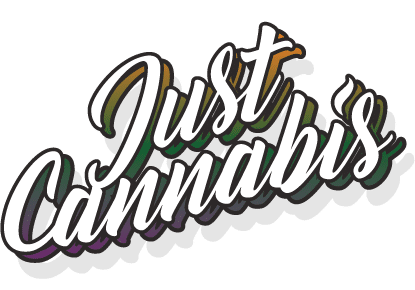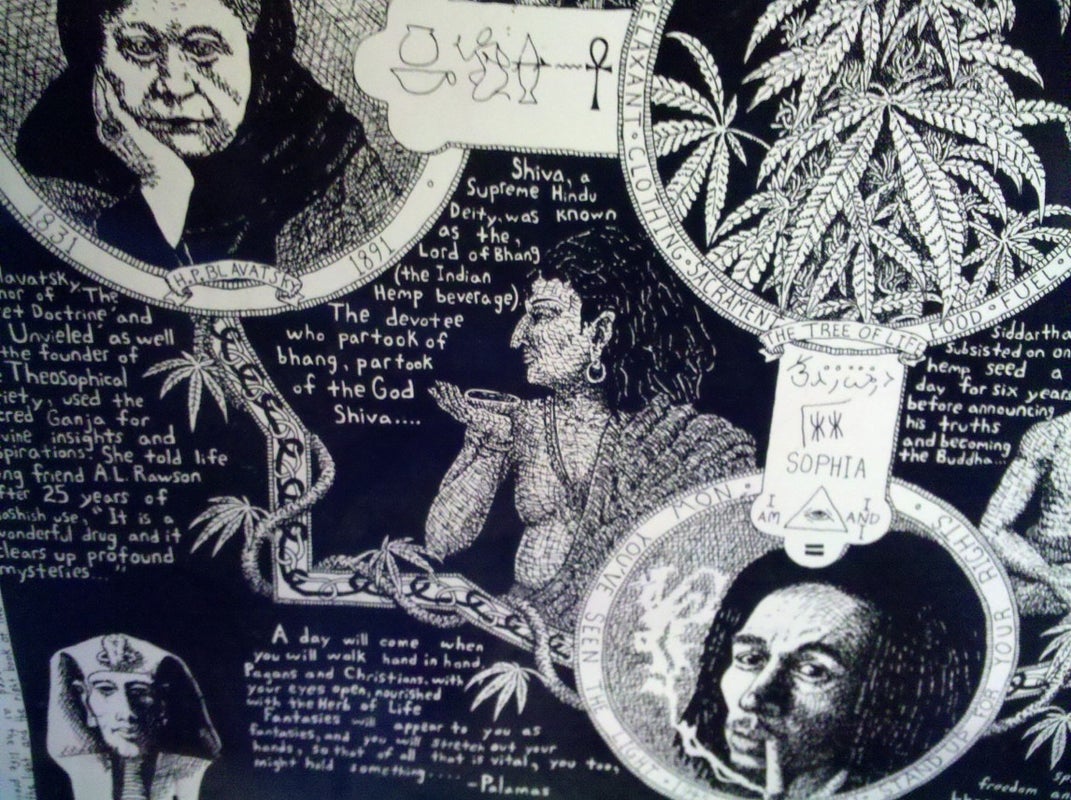Cannabis 101, Cannabis Culture
Cannabis 101: A Brief History On Ganja Glossary
A Ganja Glossary lesson and some fun facts which have emerged from the etymology of cannabis-related words.
By David Malmo-Levine
Assassin
This word dates from the middle ages, and comes from the Arabic word “hashishiyyin”, which means “hashish eater”. A group of Ismaili Muslims living in the mountains of Lebanon during the Crusades used to use assassination as a military strategy. Marco Polo promoted the tale that hashish-eating led to a mental state conducive to murder, but the fact of the matter is that hashish was used to recruit assassins. Hassan ibu-al-Sabbah, the sect’s leader, had potential members drugged with hash, where they would fall asleep and then wake up in a beautiful garden filled with good food and wine and lovely women. After a while in this heaven, they were drugged again with hashish and then woke up at the foot of their leader, who would promise this heaven to them if they died in the service of their leader.
Bhang
A drink made from cannabis leaves and buds, milk, salt-reed grass, sugar, fruit and spices. It is used in religious ceremonies by certain sects of Hindus, and is distributed during the Holi festival, celebrated in India and Nepal.
Cannabis
Cannabis is a Greek word that is a combination of two morphemes: “canna” which means “cane” and “bis” which means “smelly”. Cannabis literally means “stinky stick”! In Ancient Hebrew, cannabis was called “Kaneh-bosm” and was used in the holy anointing oil mentioned in Exodus 30:23. The words “Christ” and “Messiah” are the Greek and Hebrew words for “anointed one” – the person who has the cannabis oil spread all over them.
CBD
Cannabidiol, or “CBD” as it is commonly called, is a compound from cannabis that has many medical benefits but has little psychoactive effect other than being an antidote for too much THC. CBD is associated with a reduction in inflammation, pain, anxiety, psychosis, seizures, spasms and many other diseases. It is being researched as a tumor shrinker, and there is evidence that it’s safe even at high doses.
Drug
Drug comes from the German word “droge” which means “dry” – as in “dried herbs”. Etymologically speaking, herbs are real drugs, whereas synthetics are fake drugs.
Endocannabinoid
Endocannabinoids are neurotransmitters which bind to cannabinoid receptors found in human beings and all other animals including the 600 million year old sea-squirt. Endocannabinoid receptors are more numerous than all other types of receptors combined, including serotonin and dopamine. Anandamide was the first endocannabinoid found – found in 1992, and 2-AG is the other main one. Anandamide’s mimetic phytocannabinoid (plant-based version) is THC, and 2-AG’s mimetic phytocannabinoid is CBD. The endocannabinoid system is involved with fertility, pregnancy, appetite, pain, mood, memory and the immune system, along with our ability to perceive the passing of time.
Entheogen
Literally translated as the “the god within that has come into being”, the word describes any drug that has a “spiritual” or “sacramental” component. It shares the same Greek root as “enthusiasm”.
Ganja
A Jamaican word for cannabis buds, which comes from the Hindi word “ganjha”. Beginning in the 1840s, the British colonialists used indentured laborers from India for work on the plantations. Jamaican cannabis culture can be traced back to these laborers bringing seeds and words with them from India.
Hashish
Hashish – sometimes spelled “hasheesh” or “hash” – is an Arabic word for “dry herb” or “powdered hemp leaves”, and refers to the concentrated resinous trichomes from cannabis buds. When it is in powdered form from a dry sift it’s called “kief” or “keef”, and when pressed it’s called “hashish” or “hash”. It can be extracted with water, in which case it’s called “bubble hash”. When ice water and gentle agitation is used and the most desirable trichomes are separated with certain sized screens, the result is “full melt” or “clear dome” bubble hash – the most pure and desirable of the types of hashish – so expensive to produce it retails for well over one hundred dollars per gram, if it can be found at all. The typical hashish retails between 10 and 50 dollars per gram, depending on where one lives and the quality of the hash.
Hemp
The old English term for cannabis. Hemp has come to mean “industrial hemp” – cannabis bred for use as a resource in industry or as a food. Industrial hemp is high in CBD (See CBD).
Herb
Literally, a herb is a non-woody plant. The term “herb” has come to mean a medicine that is derived from plants or fungi, and is also used as slang for cannabis buds.
Indica
Latin for “of India” – cannabis Indica is a strain of cannabis thought to be bred in the Kush mountain range between Afghanistan and Pakistan – which used to be part of India.
Irie
A Jamaican term for “nice”, “good” or “pleasing”. Irie may be the patois pronunciation of “all right”.
Kush
Kush is a strain of cannabis Indica, referring to the Hindu Kush mountain range between Afghanistan and Pakistan. Kush varieties have been bred to be very psychoactive and have powerful relaxing and pain killing effects.
Marijuana
Mexican slang for cannabis buds. Contrary to popular sentiment, the word “marijuana” is not a racist word. It is a Mexican word that was used by racist newspaper owners in the early part of the 20th century to associate cannabis with all manner of violence and sex crimes. Earlier uses of the term, for example Mexican pharmacopeias and 19th century American newspapers, refer to it as a useful herbal medicine. The jazz, Beatnik and Hippie subcultures used “marijuana” within the context of a relatively harmless and beneficial recreational drug.
Pot
With regards to cannabis, “pot” is thought to be a shortened version of the Mexican word “potiguaya” or “potaguaya”, which means “cannabis leaves”. Another theory is that it refers to “potacion de guaya” which means “drink of grief” and refers to a drink made from wine or brandy infused with cannabis buds.
Psychonaut
A “psychonaut” is a “mind explorer” – someone who spends a lot of their time tripping on different drugs. It’s made up of the ancient Greek morphemes “psycho” which means “soul”, “spirit” or “mind”, and “naut” which means “sailor” or “navigator”.
Reefer
Slang for a cannabis joint. Probably a version of the Mexican word “grifa”, which means “cannabis”.
Roach
Slang for the butt of a cannabis joint. It might refer to the roach’s resemblance to a cockroach – or not. Nobody seems to know for sure.
Ruderalis
“Ruderalis” refers to the “ditch-weed” version of cannabis. It is derived from the Latin word “rudera”, which means “rubble”, “lump” or “rough piece of bronze”. Ruderal species of plants are any plants that are the first to grow after a fire or landslide or similar disturbance in the soil.
Sativa
Latin for “cultivated” or “anciently grown”. If a plant has “sativa” in the name, it’s probably a crop that was grown before written language. Examples are “allium sativum” (garlic), “Avena sativa” (oats), “Castanea sativa” (sweet chestnut), “Crocus sativus” (saffron), “Daucus carota subsp. sativus” (carrot), “Medicago sativa” (alfalfa), “Nigella sativa” (black cumin), “Oryza sativa” (rice) and “Pisum sativum” (peas). “Cannabis sativa” is known for it’s more stimulating effects, in contrast to “Cannabis Indica” which is more relaxing.
THC
THC stands for “tetrahydrocannabinol” and is the main (or some say only) psychoactive constituent of cannabis. It was first isolated in 1964 by Raphael Mechoulam, Yehiel Gaoni and Haviv Edery. It has recognized effects in the treatment of MS, Huntington disease, Parkinson’s, Alzheimer’s, Tourette syndrome, jaundice, cervical dystonia, epilepsy, pain, stress and acts as a bronchodiolator, anti-inflammatory and neuroprotectant.
420
Slang for “let’s get stoned” – comes from Californian high-schoolers back in the early1970’s getting high after school at 4:20 PM. Can also mean April 20th, which has become a global cannabis holiday.
710
Slang for “let’s get high with cannabis oil”. Cannabis oil is a potent cannabis extract, usually made from solvents, most often butane, but also isopropyl alcohol and carbon dioxide have been used. Recently a heat-press extraction method has resulted in an oily non-solvent extract called “rosin”. 710 is used as a code because it looks like the word “oil” when turned upside down.










I’d like to find out more? I’d want to find out some additional information.| а